

The Children's Inn at NIH Timeline
2010-2017
2011
OUR HOME
Popular Game Room Gets Makeover
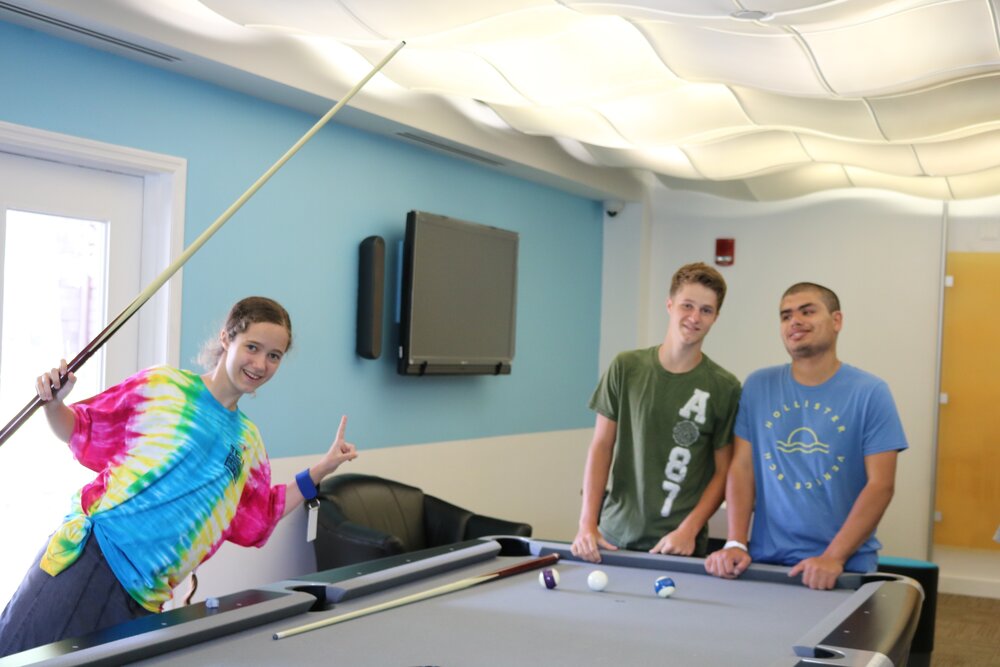
The Inn refreshes the popular game room—complete with bright colors, fun furniture, a pool table, air hockey table and all the video games on a child’s wish list.
2013
MEDICAL ADVANCEMENT
DSM-5 Includes Disruptive Mood Dysregulation Disorder as New Diagnosis
National Institute of Mental Health irritability research led to the clinical conceptualization of severe mood dysregulation in 2003, which informs the inclusion of Disruptive Mood Dysregulation Disorder in 2013 as a new mental health disorder in the Diagnostic and Statistical Manual of Mental Disorders.
2013
MEDICAL ADVANCEMENT
FDA Approves NOMID Treatment
NOMID, or neonatal-onset multisystem inflammatory disease, is a rare disease that is often fatal. This video tells the story of Kayla, who was diagnosed with NOMID as a baby. It also tells the story of a treatment for NOMID that was identified by researchers at the National Institute of Arthritis and Musculoskeletal and Skin Diseases and approved by the Food and Drug Administration for the treatment of NOMID in 2013.
2013
OUR INN FAMILY
Meet Kayla
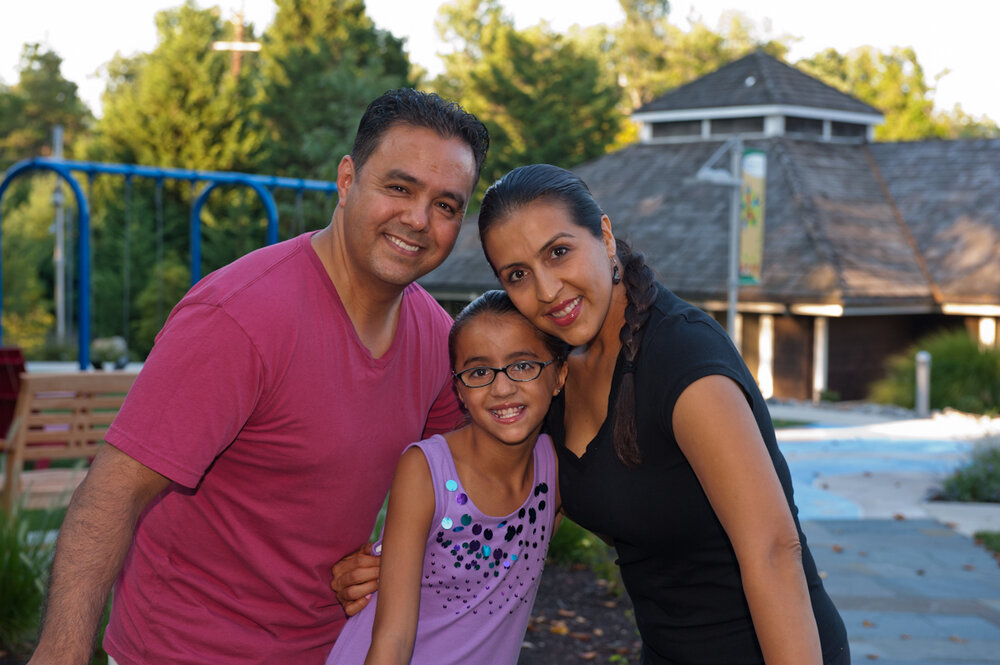
At just 15 months, Kayla came to NIH for diagnosis and treatment for neonatal onset multisystem inflammatory disease, a rare and serious genetic disease that causes inflammation, bone and joint deformities, pain, stunted growth and other debilitating symptoms. She is one of the first patients to receive anakinra, which stopped NOMID from progressing. Read more about Kayla.
2013
OUR HOME
Kitchen Renovations Benefit Seriously Ill Children

Needed renovations to The Inn’s A/B and C/D kitchens make individual refrigerators, freezers and pantry space a reality. These new features make it easier for families to meet strict dietary guidelines for children with serious food allergies and those who have undergone bone marrow transplants and must follow a low-microbial diet.
2013
OUR HOME
New Park/Playground Adds Large Outdoor Play Space
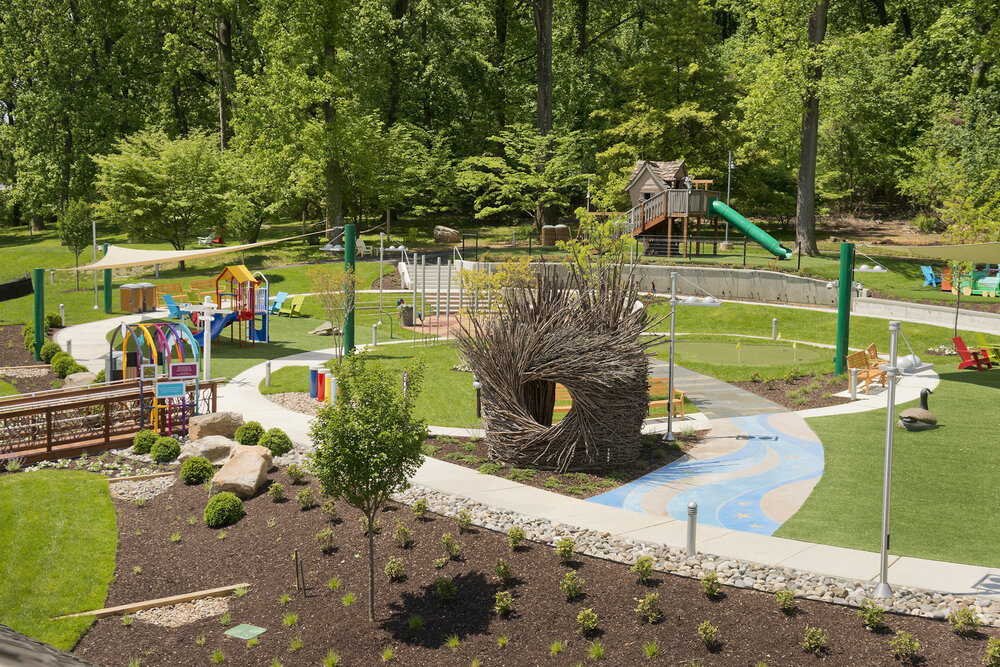
Long-time Inn supporter Leidos donates significant funds and hundreds of volunteer hours to build a brand-new park and playground for Inn families. The new outdoor space, constructed with the help of KABOOM!, features interactive play structures for children of all ages and levels of physical abilities, providing comfort and fun for Inn families.
2014
MEDICAL ADVANCEMENT
Discovering One Genetic Cause of Gigantism
Researchers at the Eunice Kennedy Shriver National Institute of Child Health and Human Development find that duplication of a gene called GPR101 causes activity up to 1,000 times stronger in affected children’s pituitary glands, leading most notably to unusual tallness but also additional symptoms.
2015
OUR INN FAMILY
Zilly
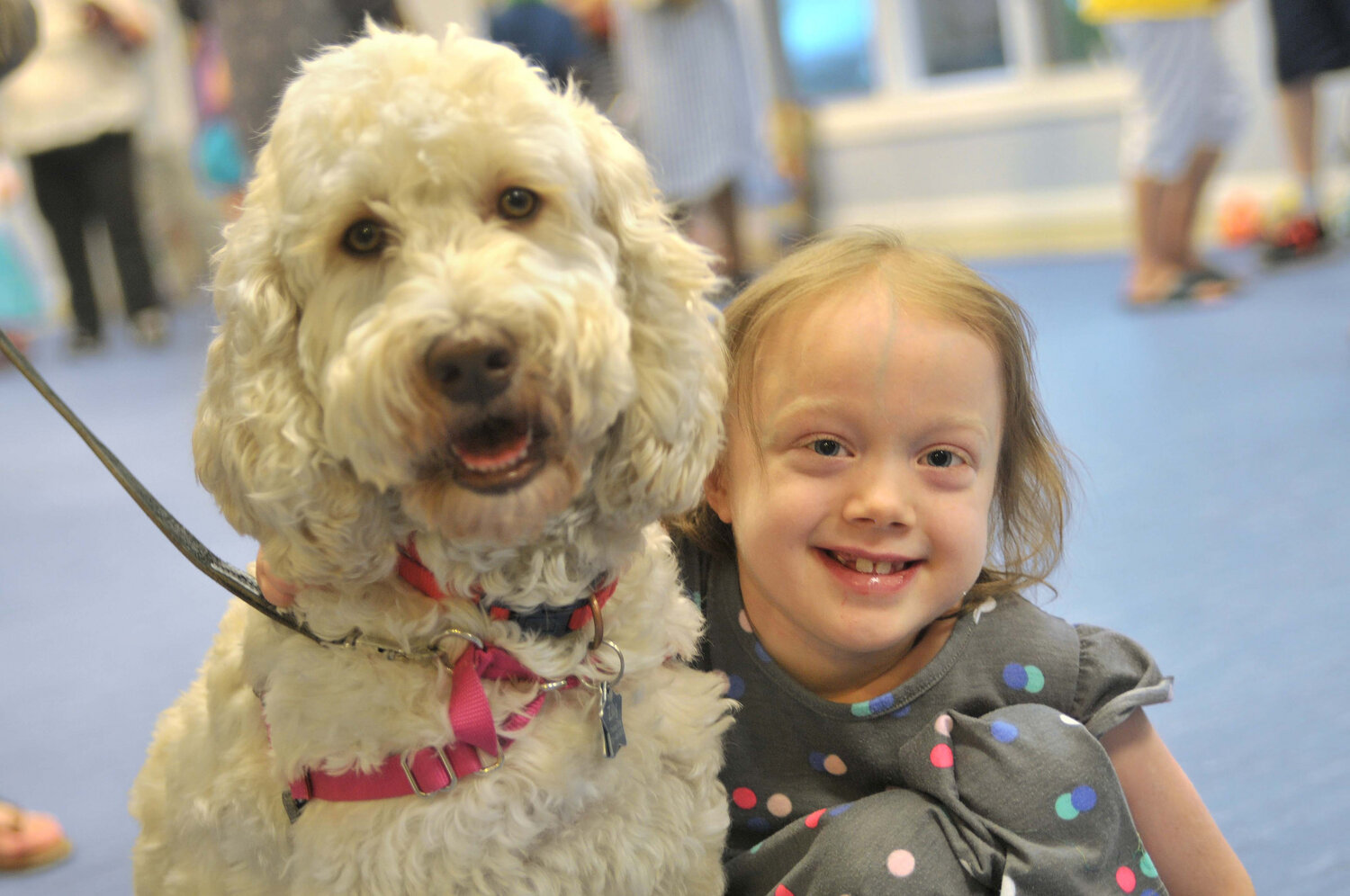
After Vi, The Children’s Inn’s first therapy dog, retires, Zilly, a multigenerational Australian Labradoodle, fills her tall pawprints to bring furry hope and kisses to children, teens and young adults staying at The Inn. Follow the adventures of Zilly, our beloved therapy dog, on Instagram as she brings smiles to kids at The Inn.
2015
MEDICAL ADVANCEMENT
A National Institute of Neurological Disorders and Stroke experimental gene therapy trial begins treating children with giant axonal neuropathy, a rare genetic neurodegenerative disease for which no treatment exists.
2015
OUR INN FAMILY
Thanks to the parents of Hannah, who was born with giant axonal neuropathy, children with this diagnosis have hope that a gene therapy trial launched at NIH may slow the progressive and ultimately fatal disease.
2015
MEDICAL ADVANCEMENT
National Institute of Allergy and Infectious Diseases researchers find that patients with LRBA deficiency, a rare genetic immune deficiency, manifested a dramatic and sustained improvement in response to abatacept, a CTLA4 (cytotoxic T lymphocyte antigen-4)-immunoglobulin fusion drug.
2015
OUR INN FAMILY
As a young boy, Aaron was naturally athletic. But around the age of 10, he noticed something strange. His muscles grew progressively weaker. Aaron’s doctors performed numerous tests to see what was wrong, but they turned up nothing definitive. In 2015, at the neurologist’s suggestion, Aaron’s parents enrolled him in a clinical trial at the NIH Clinical Center, where doctors suspected that he might have a rare autoimmune disease called anti-HMGCR myopathy. After receiving treatment in a National Institute of Arthritis and Musculoskeletal and Skin Diseases study, Aaron eventually regained normal muscle strength and function.
2016
MEDICAL ADVANCEMENT
The Children’s Inn is critical in bringing patients from across the United States to the NIH for the National Eye Institute to identify, characterize and name COMMAD syndrome. Caused by biallelic mutations in MITF, patients have coloboma, osteopetrosis, microphthalmia, macrocephaly, albinism and deafness.
2016
OUR HOME
Inn Begins Serving Young Adults Ages 26-30
The Inn increases the age limit from age 26 to 30 to better serve this vulnerable population participating in pediatric clinical research.
2016
MEDICAL ADVANCEMENT
Understanding Nerve Cell Death in NPC1 Patients
Researchers at the Eunice Kennedy Shriver National Institute of Child Health and Human Development discover that neurons die by necroptosis in patients with Niemann-Pick type C1, a rare genetic disease that leads to progressive nerve, brain and other organ damage.
2016
OUR HOME
Updating the Teen Lounge

The Children’s Inn modernizes the teen lounge with fresh paint, new furniture and lots of other updates.
2017
OUR HOME
New Building for Young Adults Slated to Open 2024

NIH grants The Inn unlimited use of a building located on the NIH campus. By 2024, the residence will provide accommodations designed to meet the needs of young adults undergoing trials and studies at NIH.

2017
MEDICAL ADVANCEMENT
The Eunice Kennedy Shriver National Institute of Child Health and Human Development researchers identify mutations in the gene CABLES1 that may lead to Cushing syndrome. The rare disorder leads the body to produce excess amounts of the stress hormone cortisol, halt growth, cause weight gain and headaches, and other issues.
2017
OUR INN FAMILY
Meet Annie
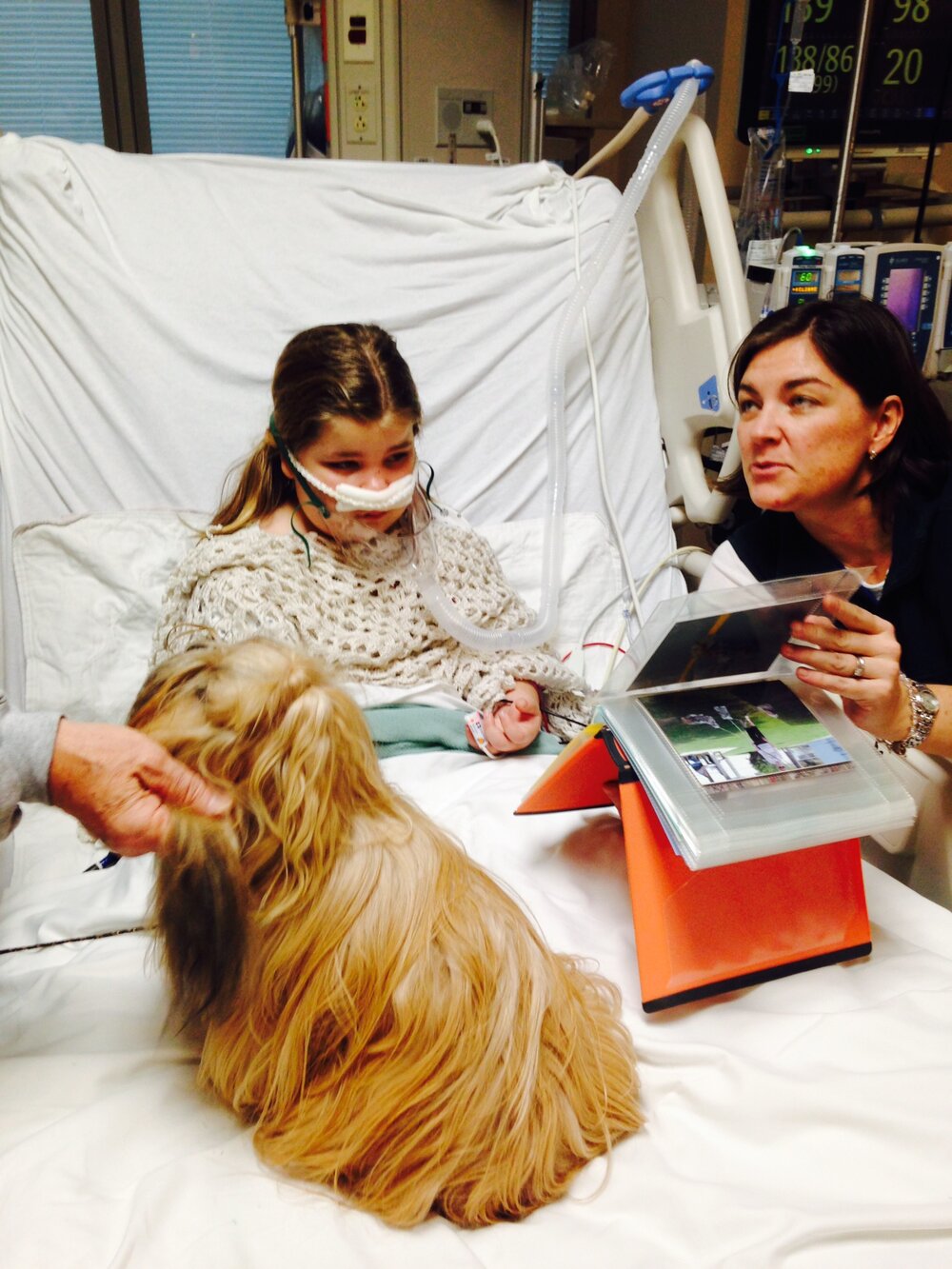
At 5 years old, Annie stopped growing and began having severe headaches along with weight gain. After being diagnosed with Cushing syndrome, researchers traced the excess cortisol in her body to a small tumor on her pituitary gland. A delicate surgery was performed to remove the tumor, allowing her to recover and regain her childhood.
2017
MEDICAL ADVANCEMENT
Trial Slows NPC1 Progression
Researchers at the Eunice Kennedy Shriver National Institute of Child Health and Human Development find that intrathecal HPβCD slows disease progression in patients with Niemann-Pick type C1 (NPC1), a rare and fatal genetic disease.
2017
OUR INN FAMILY
Meet Tina
Tina is just one of the young adults who stayed at The Inn while participating in the Niemann-Pick type C1 trial.
